HRC51: Cooperation with the United Nations, its representatives, and mechanisms in the field of human rights
The 51st Session of the Human Rights Council
12 September – 7 October 2022
Items 2 and 5 – Annual report of the United Nations High Commissioner
for Human Rights and Reports of the Office of
the High Commissioner and the Secretary-General
29 September 2022
By Farah C. / GICJ
Executive Summary
On the 29th of September, the Assistant Secretary-General for Human Rights, Ilze Brands Kehris, presented the annual report of the Secretary-General analysing the intimidations and reprisals suffered by people who cooperate with the United Nations.
The Assistant Secretary-General’s mandate was created in 2016 by the Secretary-General after he expressed his deep concern of the increasing intimidations suffered by Human Rights Defenders. The report alerted and warned that reprisals are still an ongoing trend worldwide, exacerbated by COVID-19 measures.
Geneva International Centre for Justice (GICJ) acknowledges the importance of the Assistant Secretary-General's mandate. This mandate recognises how cooperation with civil society is vital for the different mechanisms to work efficiently. Civil society brings an insight of what is happening on the ground. They are actors of change, alerting on evolving situations and pushing for relevant actions to be taken. Therefore, this mandate was created in response to an increase in the number and severity of reprisals worldwide.
GICJ especially supports the report’s call to give special attention to women cooperating with the UN. Indeed, among the 350 cases included in the report, around 60 percent concern women victims. And among the cases not shared in the report, a large majority is also composed of women victims. We join the UN’s vision that women have a crucial role in building and ensuring lasting peace and security globally. We urge States to stop hiding the repression of civil society behind laws that are supposed to ensure “national security”. We demand that they address their shortcomings in protecting the freedom of expression, association, peaceful assembly, and the right to participate in public affairs.
Background
In 2009, the Human Rights Council (HRC) formally expressed its concern over the continuous testimonies of individuals or groups having suffered reprisals and acts of intimidation from States because they cooperated with the UN, specifically in the defence of human rights. This came as a result of multiple reports from the Secretary General in the previous years, evaluating reprisals and intimidations against those cooperating with the UN.
Accordingly, the HRC adopted by consensus the resolution 12/2 (A/HRC/RES/12/2) in 2009 which invited the Secretary General to submit an annual report, called “Cooperation with the United Nations, its representatives, and mechanisms in the field of human rights”. The aim is to assess the situation of the persons cooperating with every mechanism of the UN regarding Human Rights, and formulate recommendations to address the reprisals and intimidations they face.
Subsequently, in 2016, the Secretary General expressed alarm over the ever growing trend of reprisals against persons cooperating with the UN. For this reason, he established the mandate of “Assistant Secretary-General for Human Rights”. Andrew Gilmour was first appointed, from 2016 to 2019. Ilze Brands Kehris is the current mandate holder, since 2020.
The aim of the mandate is to lead the efforts toward assessing the situation of reprisals and intimidations worldwide. The Assistant Secretary-General is also expected to give recommendations to address the different problems. The mandate acts on three levels: prevention and protection from reprisal, investigation of the complaints from victims, and accountability.
The present discussion is the annual presentation of the Secretary General’s report on the issue at the Human Rights Council.
Summary of the report
The 2022 report of the Secretary General was released on the 14th of September. The report highlighted that acts of intimidation and reprisal are still a trend despite some good practices undertaken by a few States to address the issue. It covers the period from the 1st of May 2021 to the 30th of April 2022.
Intimidations and reprisals take different forms, like travel bans, threats and harassment, including by officials, smear campaigns, surveillance, and the introduction of restrictive legislation. It can reach physical attacks, arbitrary arrest and detention, torture and ill-treatment, including sexual violence or denial of access to medical attention and killings. Intimidation is a way to discourage future participation or cooperation with the UN system. The aim is to introduce a climate of fear that will encourage people to self-censorship.
- Cooperation in the context of the Covid-19 pandemic: “risks and opportunities of online channels”
The report starts by highlighting the impact of the Covid-19 pandemic on the cooperation with the UN. The Secretary-General mentions that it continued to be a barrier during the reporting period. Although digital technologies have enhanced the participation of NGOs, notably through online participation, it raises a lot of questions. Digital technologies have their own risks that need specific responses, such as privacy intrusions, and coordinated online hostile acts, often gender-based. Even though online participation has enabled the participation of NGOs to continue, civil society denounced that States took this opportunity to limit access of NGOs to UN headquarters. NGOs were not able to participate in person up to 18 months after the start of the pandemic. No in-person side-events were organised by NGOs until the reporting period. Finally, the problem of accessibility of digital technologies for older persons and persons with disabilities was highlighted.
It is also notable that online participation helped increase written statements by 63% compared to the pre-pandemic period.
- Policy developments and good practices highlighted
Special procedures mandate holders and treaty bodies continuously communicate on their receipt of acts of reprisal and intimidation. The present report mentioned comprehensively the new allegations received by some special procedures or treaty bodies. It mentioned as well the follow-up on previous allegations.
- Ensuring access to the UN, its representatives and mechanisms in the field of human rights
The report expressed concerns regarding the methods of the Committee on Non-Governmental Organizations. This committee is in charge of assessing the requests from NGOs to obtain the consultative status’, in cooperation with the Economic and Social Council (ECOSOC). The Committee and ECOSOC are composed of Member States. The report highlights the lack of transparency, objectivity, and efficiency of the Committee’s accreditation process.
Firstly, the Committee received a growing number of requests. During the reporting period, it received a record number of 855 new applications. A practical question regarding the treatment of this high number of applications was underlined. However, the Secretary-General condemned the lack of objectivity by Member States in the assessment of the applications. Even though the Committee is subjected to guidelines and every final decision is submitted to the vote of the Economic and Social Council, it is common for Member States to attempt to exclude NGOs from getting the consultative status, by blocking or delaying the reviewing of the application, notably based on “procedural mistakes”.
- Information received on acts of intimidation and reprisal for cooperation with the UN
The present report reviewed 42 States on which the Secretary General’s office received reliable inputs.
The States referred to in the report are:
Afghanistan, Andorra, Bahrain, Bangladesh, Belarus, Brazil, Burundi, Cameroon, China, Cuba, Cyprus, Democratic Republic of the Congo, Djibouti, Egypt, Guatemala, India, Indonesia, the Islamic Republic of Iran, Israel, Kazakhstan, Laos People’s Democratic Republic, Libya, Maldives, Mali, Mexico, Morocco, Myanmar, Nicaragua, Philippines, Russian Federation, Rwanda, Saudi Arabia, South Sudan, Sri Lanka, Sudan, State of Palestine, Thailand, Turkmenistan, United Arab Emirates, the Bolivarian Republic of Venezuela, Viet Nam, and Yemen.
A number of cases were also addressed confidentially due to the risk they represented to the victims, in accordance with the “do no harm” policy.
The first part is a summary of the cases. The report contains an annex I with each State case detailed. Then, a second annex at the end of the report constitutes a follow-up on previous cases treated by the Secretary-General in previous reports, and the replies of governments if any.
The main profiles of victims of reprisals and intimidation seem to be victims of human rights violations, human rights activists, and journalists. But, it can also affect lawyers, community workers, national human rights institutions, and government officials. Persons helping others cooperate can also be victims. Then, every person linked to the individual directly targeted can be affected: members of family, representatives, friends etc… Women and girls are specifically targeted based on their gender.
Interactive dialogue
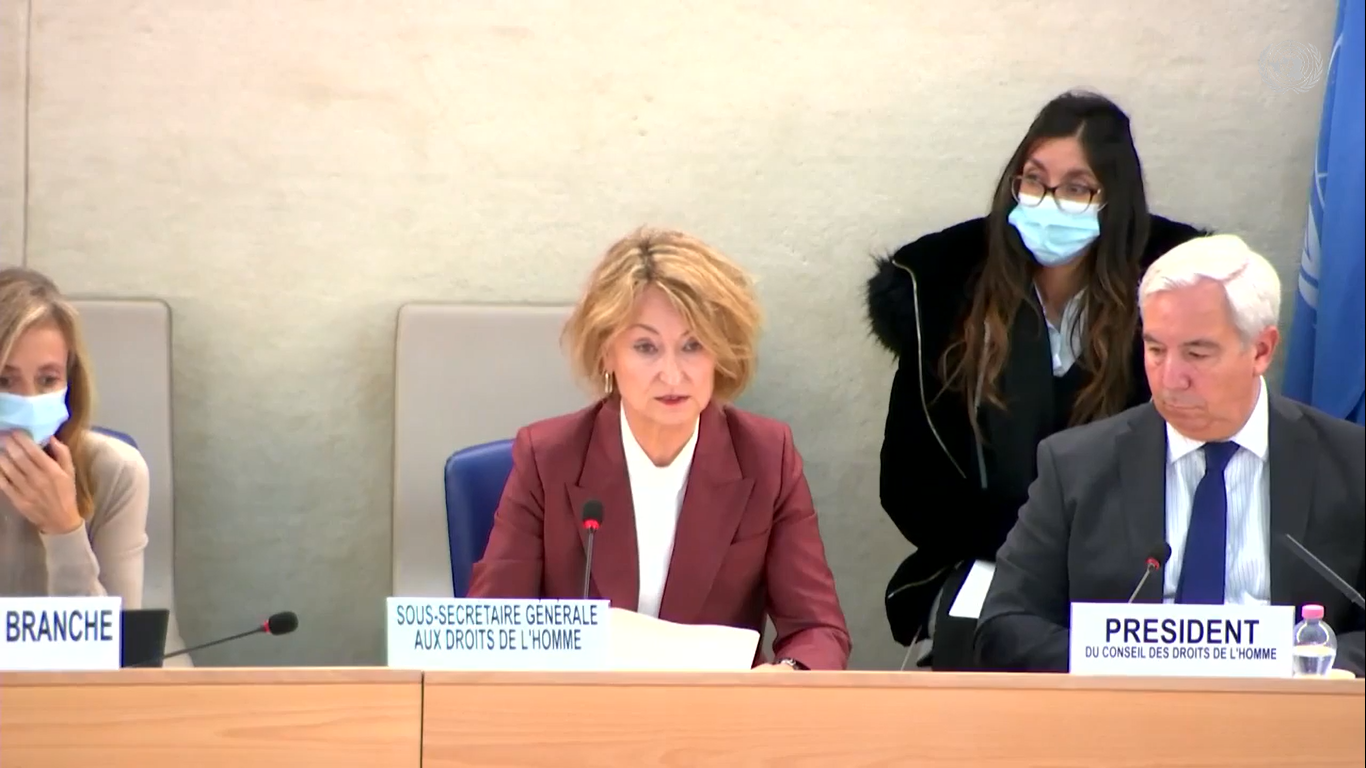 Besides recalling the main points of the report before the Human Rights Council, the Assistant Secretary-General for Human Rights, Ilze Brands Kehris, stressed that among the victims of reprisals and intimidations, women and girls were particularly targeted and vulnerable.
Besides recalling the main points of the report before the Human Rights Council, the Assistant Secretary-General for Human Rights, Ilze Brands Kehris, stressed that among the victims of reprisals and intimidations, women and girls were particularly targeted and vulnerable.
She emphasised the need for the UN to do more to encourage a safe and meaningful participation of women. Their voice is essential as Human Rights Defenders and peace-builders.
The following States were mentioned in the report. They took the floor during the Interactive dialogue. Most of the countries that were directly concerned by the report as having some cases of reprisals and intimidation addressed the Council to criticise the legitimacy of the information disclosed.
Belarus
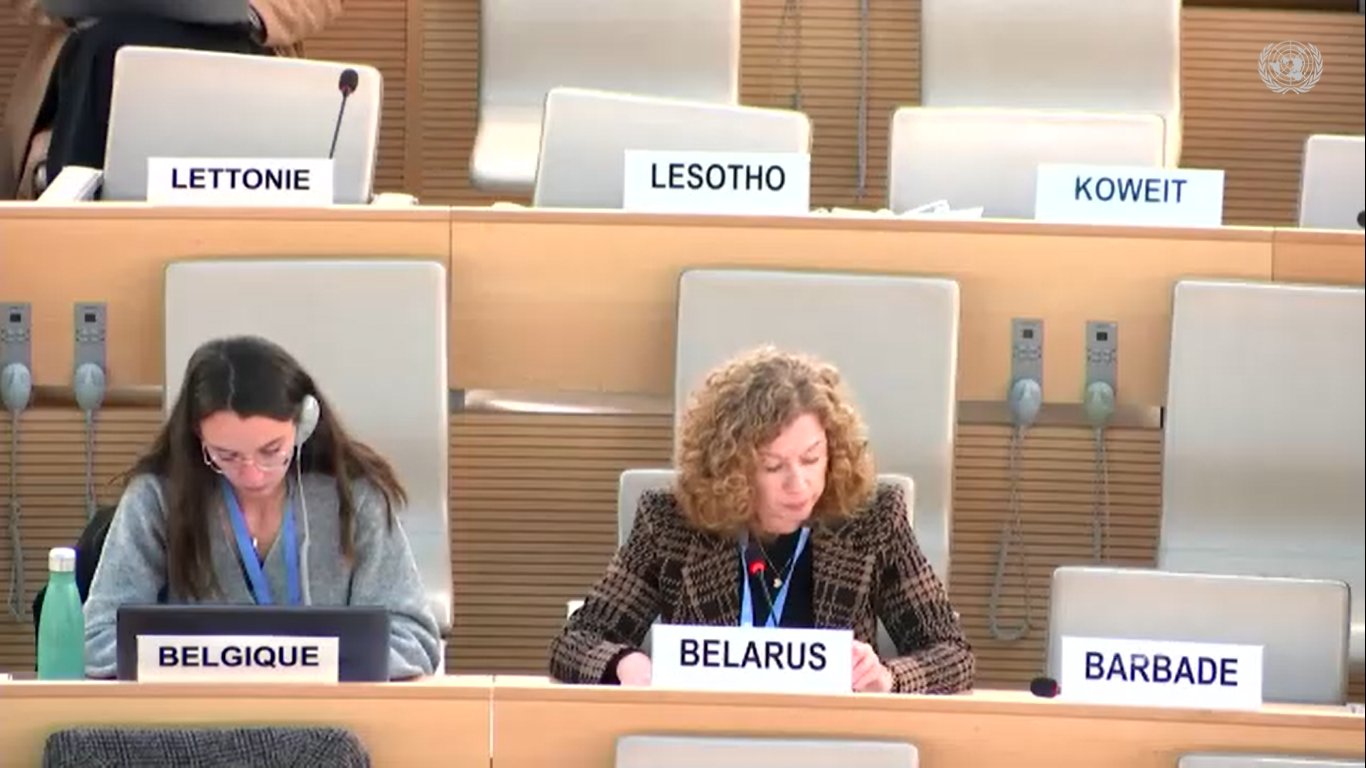 The Belarus representative stated that civil activists have been freely engaging with public activities. However, they must comply with the law. She explained that the cases of reprisals mentioned in the report are regular judicial case laws. Therefore, the sanctions of liquidation and suspension taken against the activists were in line with the law and judicial case law. Belarus was indeed accused in the report of having executed several unlawful dissolution of civil society organisations. Some legislative changes affecting the ability of civil society to engage with the UN were also highlighted. The Special Rapporteur on the situation of human rights in Belarus told the Secretary-General that they refrained from sharing information received from two Belarus NGOs given the high risk of reprisals they could face. The report mentioned that, as it is the case of the majority of countries concerned by the assessment, the civil society suffers from reprisal in the form of judicial decisions, that are based on laws with undefined and ambiguous terminology. In that regard, the report denounced Belarus' amendment to the criminal code that enables the prosecution for “extremist activities”, without properly defining this term.
The Belarus representative stated that civil activists have been freely engaging with public activities. However, they must comply with the law. She explained that the cases of reprisals mentioned in the report are regular judicial case laws. Therefore, the sanctions of liquidation and suspension taken against the activists were in line with the law and judicial case law. Belarus was indeed accused in the report of having executed several unlawful dissolution of civil society organisations. Some legislative changes affecting the ability of civil society to engage with the UN were also highlighted. The Special Rapporteur on the situation of human rights in Belarus told the Secretary-General that they refrained from sharing information received from two Belarus NGOs given the high risk of reprisals they could face. The report mentioned that, as it is the case of the majority of countries concerned by the assessment, the civil society suffers from reprisal in the form of judicial decisions, that are based on laws with undefined and ambiguous terminology. In that regard, the report denounced Belarus' amendment to the criminal code that enables the prosecution for “extremist activities”, without properly defining this term.
China
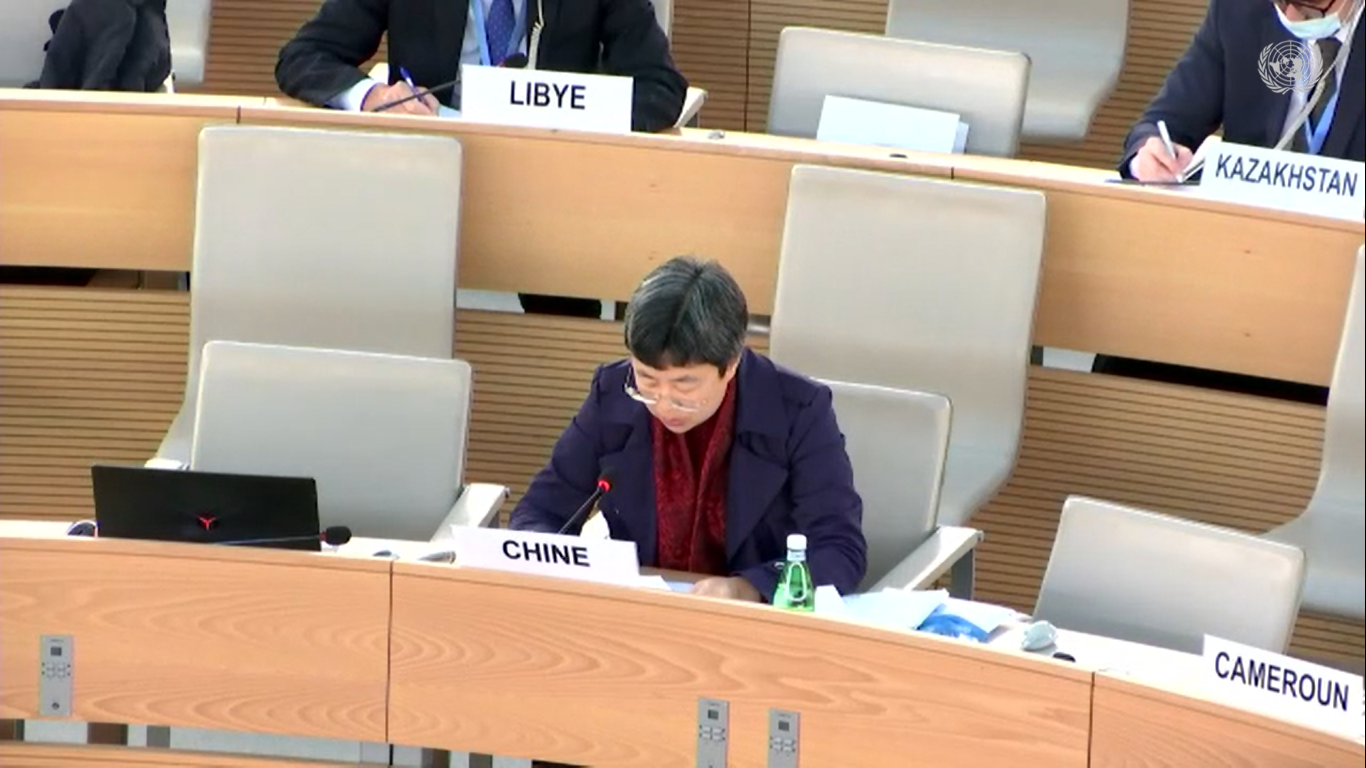
The Chinese delegate accused the report of disclosing unverified information in an indiscriminate manner. They blamed the report for supposedly depicting regular Chinese judicial cases as reprisals. She reminded that China is a rule of law State where every citizen is equal before the law. The delegate designated the people mentioned in the report as criminals, thus explaining their detention. One of them is a Human Rights Defenders network that experienced Chinese repression after having sent a letter to the United Nations High Commissioner for Human Rights.
Cuba
The Cuban delegate rejected the report on reprisals. He claimed that it is used by the UN mechanisms to channel accusations against the States. He denounced the report for not including any case assessing developed countries.
Egypt
The Egyptian representative joined other countries in saying that UN bodies should verify the information contained in the report.
Indonesia
Indonesia’s delegate reiterated that her country rejects any forms of reprisals and intimidation. However, she emphasised that the report does not reflect the comprehensive information regarding the cases mentioned. She denounced that the report continues to mention previous cases that have been responded to by the State.
Iran
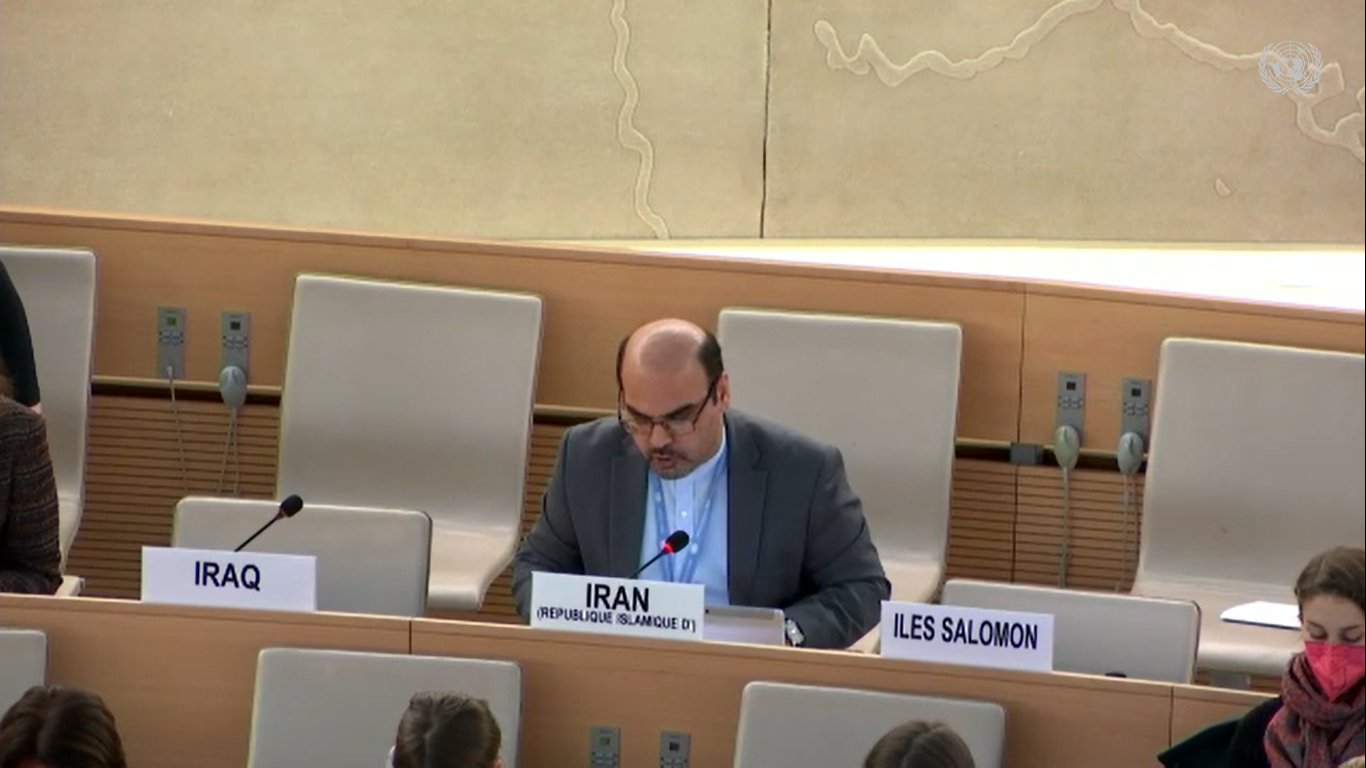
For the Iranian representative, the report was simply composed of fake and biased information. He accused the UN bodies of not providing credible information. Therefore, the country rejected the allegations. However, the delegate highlighted that he had several communications on every case mentioned, and that the State is willing to continue its cooperation with the UN.
Laos
After recalling its commitment to protect human rights, the delegate categorically rejected the allegations in the report and called them “groundless”. He denounced this information for not being in line with the UN principles of objectivity, non-selectivity, and non-politisation.
Russia
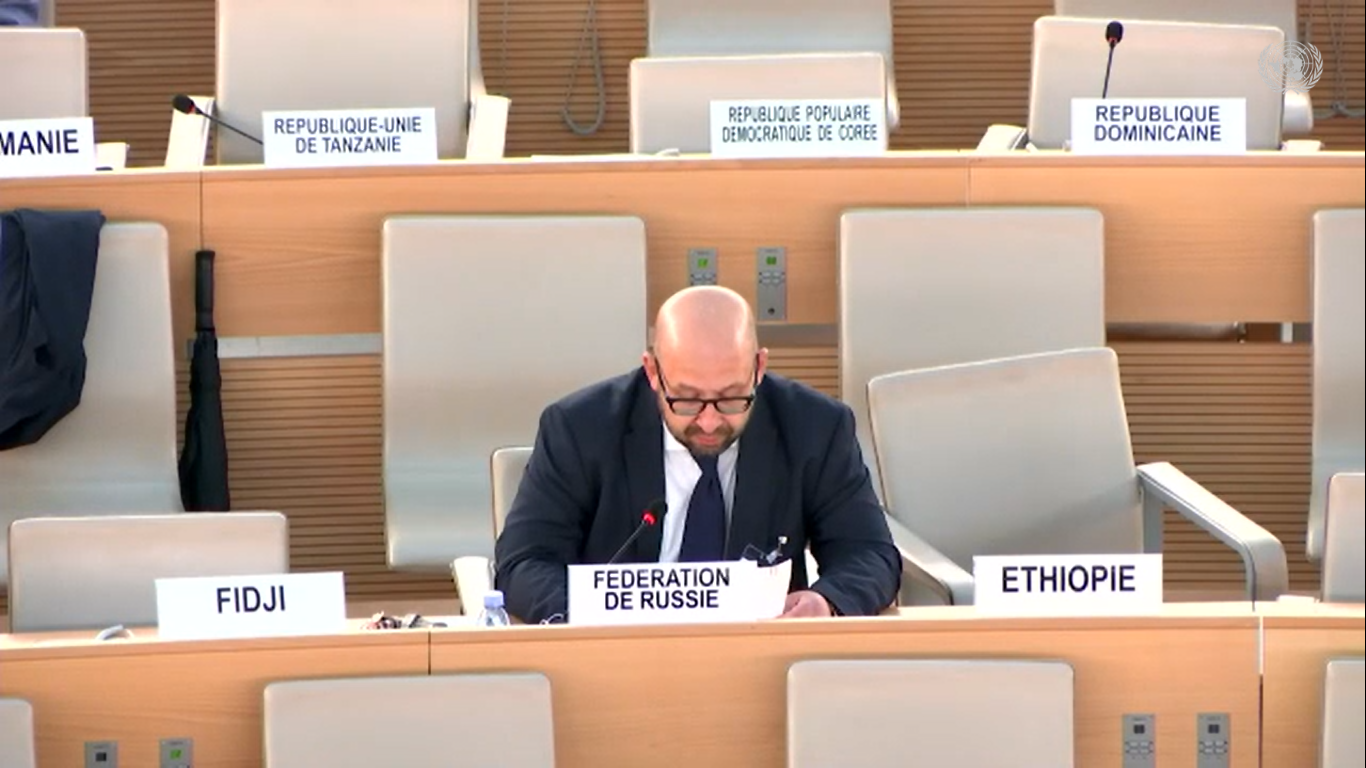
The report denounced the harmful effects of restrictive legislations, notably the laws on “foreign agents” and “undesirable organisations”. Civil societyorganisations labelled as foreign agents are subjected to specific scrutiny, especially regarding the funding they received. The report denounced that these laws conducted to self-censorship from the civil society and dissuaded individuals from engaging with the UN. There were abuses from the States in organisations being audited, heavily fined, and forced to dissolve.
In this regard, the Russian representative argued that they offered exhaustive explanations on the foreign agents.
Saudi Arabia
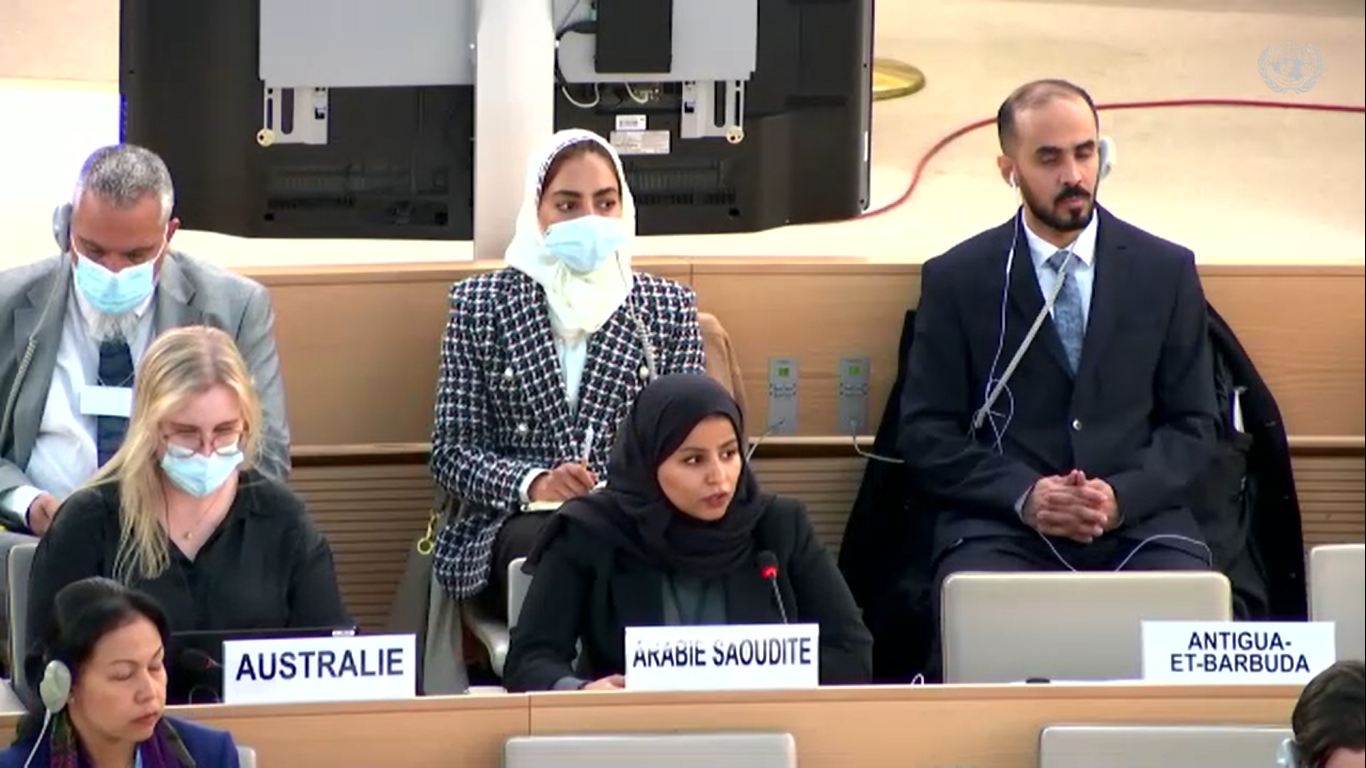
The delegate recalled that all residents are equal before the law and that every case law falls within the legal framework. She argued that the State had provided complete information regarding the cases mentioned in the report. Some of the individuals mentioned in the report have been put to trial and sentenced, but they have enjoyed fair trials. The representative rejected any forms of reprisals against anyone. Therefore, she called for the UN to take into account the answers provided by the countries.
Sri Lanka
The delegate rejected the allegations of reprisals in the report. He reiterated the commitment of the country to civic space and freedom of expression.
State of Palestine
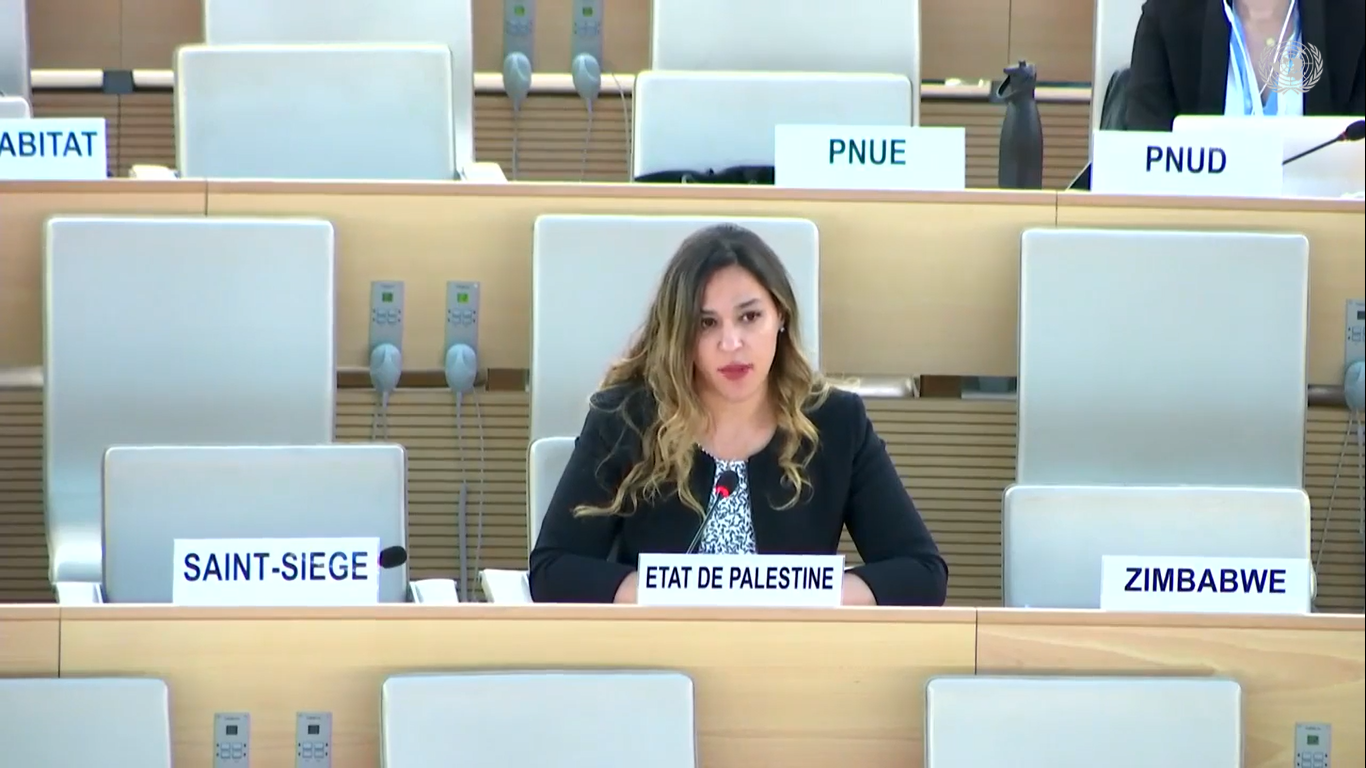
The representative denounced the crackdown of Israeli authorities on the 6 Palestinian NGOs in August 2022. However, she said that the country is fully aware of the human rights challenges it faces internally. The country wants to show its willingness to cooperate and address these issues, notably through its membership of many UN mechanisms. Finally, she mentioned the upcoming visit of the Subcommittee on the Prevention of Torture. Palestine reiterated their readiness to welcome the feedback they will receive from them.
Venezuela
The representative said that the cases in the report are baseless. He argued that the country answered them in due time. He denounced the report as being a tool to shame countries of the South.
Yemen
The Yemeni delegate welcomed the report findings. Most notably, he acknowledged reprisal cases committed by the Houthis.
NGOs:
Numerous NGOs took the floor to express their support to their Human Rights Defenders colleagues that were affected by measures of intimidation and reprisals. All of them warned how these attacks on civil society were far from being isolated or settled, as States claimed.
Among them was a Palestinian NGO’s representative who spoke on behalf of the 6 NGOs that were shut down by Israel in August 2022. She emphasised that the reprisals suffered by Palestinian civil society is part of the wider systemic actions by Israeli government that falls within an apartheid and colonialism regime. The country continued to escalate its attacks on civil society and these 6 NGOs since the release of the report.
Geneva International Centre for Justice position
Geneva International Centre for Justice (GICJ) acknowledges the importance of the mandate of the Assistant Secretary-General for Human Rights. The UN created this mandate because it recognised how cooperation with civil society is vital for the mechanisms to work efficiently. Civil society brings an insight of what is happening on the ground. They are actors of change, alerting on evolving situations and pushing for relevant actions to be taken. This mandate was created in response to an increase in the number and severity of reprisals worldwide.
GICJ especially supports the call in the report to give special attention to women cooperating with the UN. Indeed, among the 350 cases included in the report, around 60 percent concern women victims. And among the cases not shared in the report, a large majority is also composed of women victims. We join the vision of the UN that women have a crucial role in building and ensuring lasting peace and security globally.
Also, we urge States to stop hiding the repression of civil society behind laws that are supposed to ensure “national security”. We demand that they address their shortcomings in protecting the freedom of expression, association, peaceful assembly, and the right to participate in public affairs.
Reprisals, Intimidations, Human Rights Council 51, HRC51, Human Rights Defenders, Geneva International Centre for Justice
Full UN report from the Assistant Secretary-General : A/HRC/51/47: Cooperation with the United Nations, its representatives and mechanisms in the field of human rights - Report of the Secretary-General




